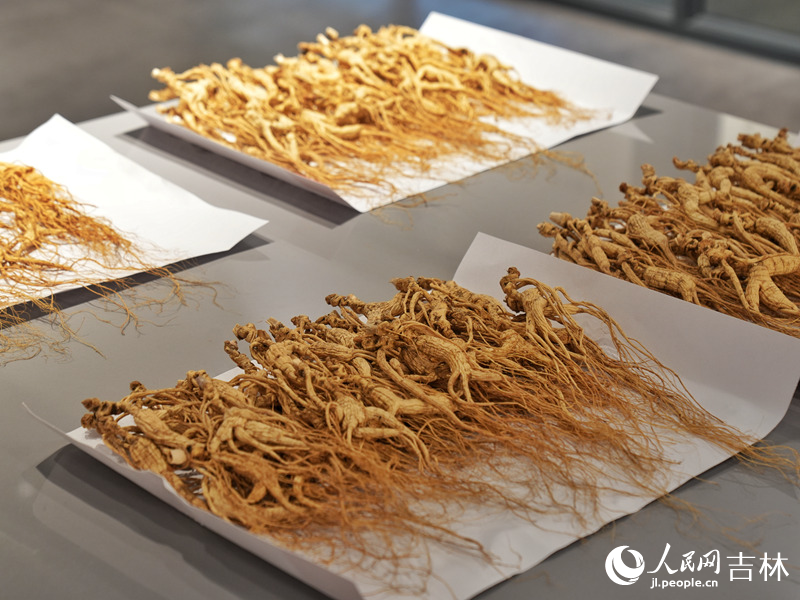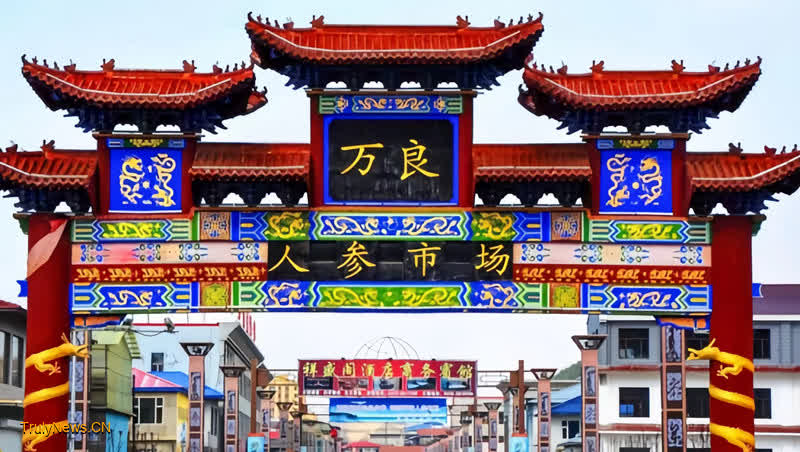Ginseng cultivation is driving economic growth in northeast China’s Fusong county, where the medicinal herb, often called the “king of herbs,” has become a booming industry.
Nestled in the Changbai Mountain region, Fusong county in Jilin Province stands as a major ginseng production hub with a cultivation heritage spanning more than 460 years. The area is recognized as China’s traditional ginseng heartland.

Photo shows ginseng roots from Changbai Mountain, northeast China’s Jilin Province. (People’s Daily Online/Li Yang)
“Our ginseng yield per mu (0.067 hectares) has reached more than 750 kilograms this year,” said Wang Zengzhu, Party chief of Dafang village in Wanliang township, Fusong county.
The village faced challenges when authorities banned traditional ginseng cultivation on cutover lands to protect the environment. The Fusong ginseng quality testing center provided a solution by introducing farmland cultivation methods.
What began as a 10-mu experimental field in Dafang village in 2011 has expanded to 200 mu. The initiative now supports more than 200 farming households, with each earning approximately 100,000 yuan ($13,800) annually.
In recent years, Fusong has enhanced its ginseng sector through improved varieties and standardized planting techniques, balancing quality assurance, farmer income and environmental protection. Local authorities continue to develop the industry, striving to make the sector a new growth point for high-quality development.
The Changbai Mountain Ginseng Market in Wanliang township has emerged as a bustling trading hub, with vendors reporting strong daily earnings.
“I can earn several thousand yuan a day on average,” said Li Jianxia, a market seller.

Photo shows Changbai Mountain Ginseng Market in Wanliang township, Fusong county, Baishan city, northeast China’s Jilin Province. (Photo courtesy of the publicity department of the Communist Party of China Fusong county committee)
The market dominates China’s ginseng trade, handling about 80 percent of national transactions. In 2023, fresh ginseng sales reached 2.74 billion yuan, while dried ginseng transactions totaled 4.2 billion yuan.
Quality control has become a top priority. Jilin Province implemented a ginseng quality traceability platform and established the Jilin Ginseng Product Inspection and Testing Alliance to maintain product standards.
Zeng Fansheng, Party chief of Fusong, said the county has strived to promote the high-quality development of its ginseng industry in recent years. “The transaction volume of the entire ginseng industrial chain in the county approached 20 billion yuan in 2023,” Zeng said.
The county has encouraged research and development while promoting cooperation between enterprises, universities and research institutions to develop competitive ginseng products, including ginseng polypeptide. It has also established an industrial park that has attracted more than 30 leading enterprises.
Fusong county now hosts 3,200 ginseng processing enterprises, including 37 major companies. The county produces more than 600 types of ginseng-based products, from food and beverages to pharmaceuticals, health products and cosmetics, which are exported to more than 30 countries and regions. Currently, 45,000 people in the county work directly in ginseng production, sales and related industries.